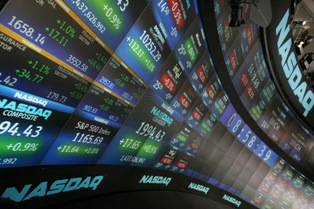Institutional traders operate in a world where speed, precision, and control can determine the difference between significant profit and costly loss. Unlike retail investors, institutions manage massive volumes of assets, often executing trades worth millions or even billions of dollars. In this high-stakes environment, Direct Market Access (DMA) has emerged as a vital tool that gives these traders an edge by allowing them to bypass traditional intermediaries and interact directly with the markets.
This article explores how institutional traders leverage DMA to optimise their strategies, reduce costs, and gain a competitive advantage.
What is Direct Market Access (DMA)?
Direct Market Access refers to a technology framework that allows traders to place orders directly into the order books of exchanges or other trading venues, without the intervention of a traditional broker who acts as an intermediary. This is a fundamental shift from conventional trading, where brokers execute trades on behalf of clients, often introducing delays, additional costs, and less transparency.
DMA is supported by sophisticated technology and infrastructure that enables fast, direct connections to exchanges, electronic communication networks (ECNs), and alternative trading systems (ATS). Institutional traders can access a wide range of asset classes, including equities, futures, options, and foreign exchange markets. The power of DMA lies in its ability to provide institutions with direct visibility into the market’s order book and real-time execution capabilities. Explore this original site for more info.
Why Institutional Traders Prefer DMA
Institutional traders are under constant pressure to execute large trades efficiently without causing excessive market impact or incurring high costs. DMA meets these demands by giving them the speed and control necessary to handle substantial orders. Speed is critical; even milliseconds can affect execution quality and trading outcomes.
By using DMA, institutions enjoy transparency that traditional broker-assisted trading often lacks. Direct access means they can see the actual market depth and liquidity pools, allowing for more informed decisions about when and how to place trades. Eliminating the broker’s middleman role also reduces transaction costs and fees, which can add up significantly when trading large volumes. Moreover, DMA enables the implementation of advanced, sophisticated trading strategies that require precise timing and order placement.
Core Advantages of DMA for Institutional Traders
The foremost advantage of DMA is its ability to offer faster execution speeds. Because orders go straight to the market without intermediary handling, latency is dramatically reduced. This speed advantage is crucial for institutional traders who need to minimise slippage—the difference between the expected price of a trade and the price at which the trade is executed. Lower slippage translates directly to better trade outcomes.
Market transparency is another critical benefit. With DMA, traders have direct access to the exchange order books, allowing them to monitor real-time bids and offers. This transparency facilitates better price discovery, enabling traders to gauge market sentiment and liquidity more accurately.
Additionally, DMA grants traders enhanced control over their orders. They can customise order types, such as limit orders, stop orders, or iceberg orders, and select routing options to access different liquidity pools or dark pools. This granular control is essential for executing large block trades without signalling intentions to the broader market and thereby avoiding adverse price movements.
Key DMA Features Utilised by Institutional Traders
Several features make DMA indispensable for institutional traders. Smart Order Routing (SOR) is one such capability that automatically searches multiple venues to find the best price and liquidity for a trade. This ensures orders are executed optimally across fragmented markets.
Algorithmic trading is tightly integrated with DMA, allowing institutions to automate complex strategies that respond instantly to market changes. Algorithms can quickly place, modify, or cancel orders based on pre-programmed criteria, leveraging the speed and direct access that DMA provides.
Institutions also gain access to multiple liquidity pools, including dark pools, which are private exchanges that allow large trades to be executed anonymously. This helps minimise market impact by hiding large order sizes from public view.
How DMA Supports Advanced Trading Strategies
DMA is particularly critical for strategies requiring fast and precise execution. High-frequency trading (HFT), for instance, depends on ultra-low latency connections to place and cancel orders within microseconds. DMA provides the technological backbone necessary for these rapid-fire trades.
Algorithmic trading benefits enormously from DMA, as automated systems can execute a large volume of orders with complex instructions without manual intervention. DMA’s direct access ensures these algorithms can respond instantaneously to market conditions, seizing fleeting opportunities.
Large block trades pose a unique challenge due to their potential to disrupt market prices. DMA allows institutions to split these orders into smaller chunks and execute them stealthily over time, thereby reducing the market impact and improving execution quality.
Conclusion
Direct Market Access has revolutionised the way institutional traders interact with financial markets. By providing speed, transparency, control, and cost efficiency, DMA gives institutions the tools necessary to execute large, complex trades effectively and gain a vital edge over competitors. As technology advances and markets evolve, DMA will continue to play a critical role in shaping the future of institutional trading. For institutions aiming to maintain or enhance their market position, embracing DMA is no longer optional but essential.



